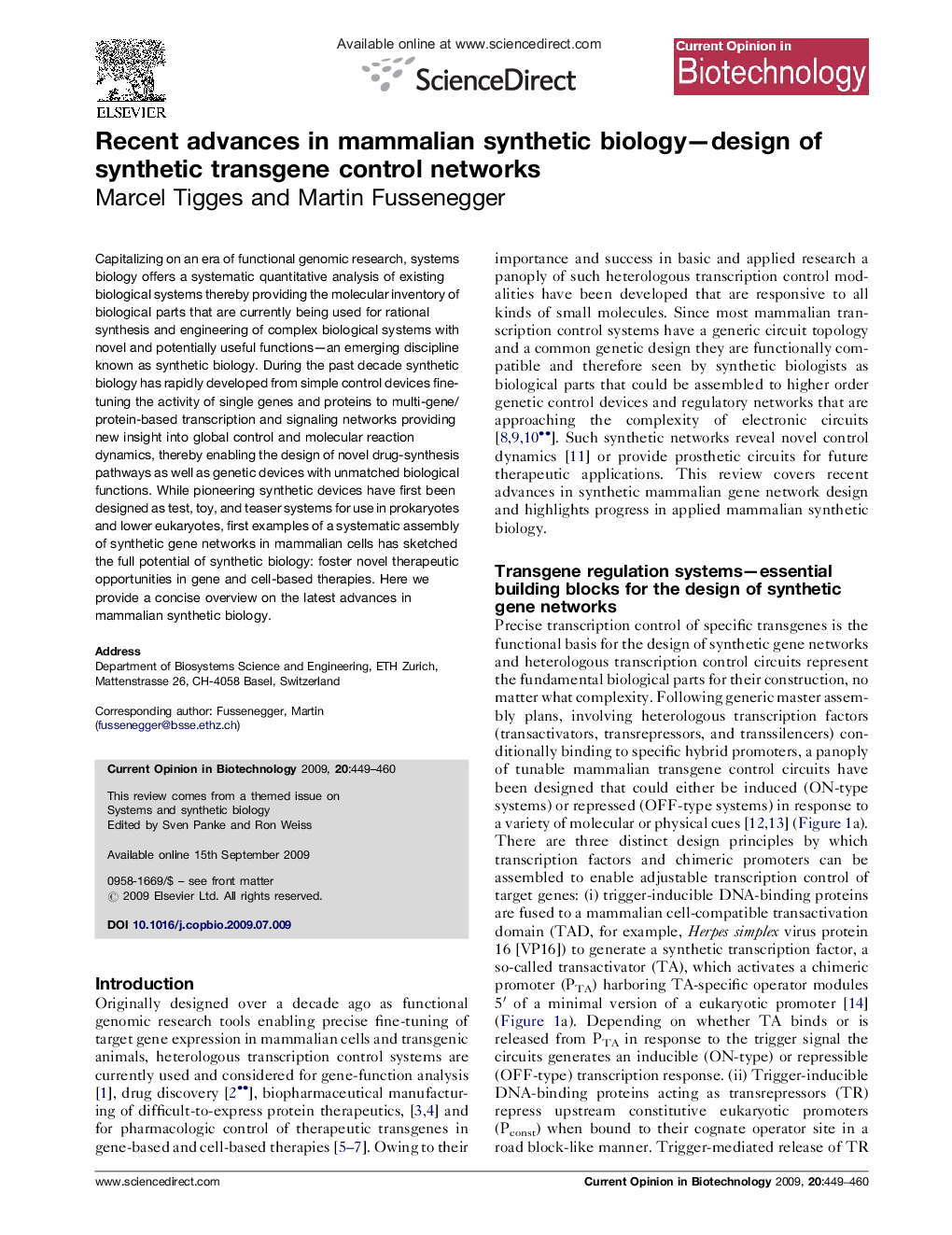| Article ID | Journal | Published Year | Pages | File Type |
|---|---|---|---|---|
| 16495 | Current Opinion in Biotechnology | 2009 | 12 Pages |
Capitalizing on an era of functional genomic research, systems biology offers a systematic quantitative analysis of existing biological systems thereby providing the molecular inventory of biological parts that are currently being used for rational synthesis and engineering of complex biological systems with novel and potentially useful functions—an emerging discipline known as synthetic biology. During the past decade synthetic biology has rapidly developed from simple control devices fine-tuning the activity of single genes and proteins to multi-gene/protein-based transcription and signaling networks providing new insight into global control and molecular reaction dynamics, thereby enabling the design of novel drug-synthesis pathways as well as genetic devices with unmatched biological functions. While pioneering synthetic devices have first been designed as test, toy, and teaser systems for use in prokaryotes and lower eukaryotes, first examples of a systematic assembly of synthetic gene networks in mammalian cells has sketched the full potential of synthetic biology: foster novel therapeutic opportunities in gene and cell-based therapies. Here we provide a concise overview on the latest advances in mammalian synthetic biology.
